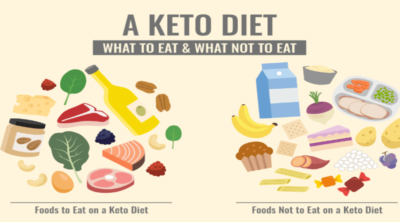
Consuming excess amount of protein powder can lead to side effects like kidney disorders, allergy, etc. That’s the reason why before including it in your diet, you should consider all its pros and cons.
Proteins play a vital role in building muscles and tissues of the body. The amount of protein an adult needs per day is 0.9 grams per pound of his body weight. The requirement varies with factors like age, weight and athletic activity. Protein powder is taken as a supplement to the daily protein intake.
Side Effects
When consumed in excess, protein powders have side effects. “Excess” is when the intake exceeds your daily requirement. Calculate the amount of protein you get daily from dietary sources. Check the protein content per serving of your protein powder. Add the amounts and ensure that your total intake of protein per day does not exceed your daily requirement. It is recommended that you consult a nutritionist before including any supplements in your diet.
Deficiency of Calcium
Consumption of excess protein powder turns the blood acidic in nature. In order to neutralize this, the bones in the body release calcium into the blood. The calcium reduces acid in the blood and makes it basic again. However, in this whole process, the body loses out on a lot of calcium. Diseases, such as osteoporosis, can be caused due to deficiency of calcium.
Malfunctioning of Kidneys
As mentioned above, taking protein powder in excess, releases calcium in the blood. This calcium gets deposited in the kidneys and results in kidney malfunction. It may sometimes lead to the formation of kidney stones too. The body may develop ketosis. Ketosis is a condition of chronic starvation caused in the human body, due to lack of carbohydrates. Ketosis can be very detrimental to the kidneys.
Effect on Liver
Consumption of protein powder in excess can be very damaging for the liver. This is due to the fact that the liver in the human body has a limited capacity to assimilate proteins. When it is consumed in excess, the liver is pressurized to a great extent, while assimilating the excess proteins.
Allergic Reaction
One of the side effects of whey protein powder is that it may trigger an allergic reaction in people who have a lactose intolerance. This is due to the fact that whey protein powder is made from milk, and one of the principal contents of milk is lactose. So, consuming this can cause allergy in some people. That is why people prefer rice protein powder instead of whey protein, as it does not cause an allergic reaction. The reason for this is that rice protein powder is not made from milk. Another option is to go in for whey protein isolate instead, as it consists of only one percent concentration of lactose.
Gastrointestinal Problems
Such problems are primarily caused due to the soy protein powder. Excess consumption of soy protein can cause flatulence, indigestion and bloating.
Ketosis
Ketosis is a state wherein the body experiences chronic starvation. Researches have shown that excess protein, taken by way of protein powders, can cause this condition, affecting the kidneys in the process and causing a deficiency of carbohydrates in the body. This can be damaging for the liver and can even destroy muscle tissues.
Besides the ones listed above, other minor side effects resulting from incorrect intake of protein powder are – a feeling of nausea, general fatigue, weight loss, headache and muscle cramps. It is wise to get your personalized diet and protein intake chart drawn from the doctor or the nutritionist. You should consume only those amount of proteins that are mentioned in the chart to avoid side effects.
Protein powders that are available in the market are made from either of the four sources namely, egg, soy, whey or rice. Organic whey protein powder is widely available too. People consume this after mixing it in water, milk or a fruit juice; or they may also add it to breakfast cereals, porridge, soups and a whole lot of other dishes.
Looking at the grave side effects of the protein powders, or for that matter, any other body building supplements, it can be concluded that a natural healthy diet is much more fruitful and effective. A balanced diet, which includes all the required nutrients, such as carbohydrates, proteins, vitamins and fats, obtained from natural products, is the key to healthy living.
Disclaimer: This article is meant only for educational purposes. It does not attempt to replace the advice offered by a doctor.


